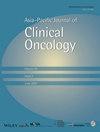Decoding the Role of CDCA Genes in Breast Cancer Progression: Insights From in Silico and Functional Assay
Abstract
Background
The cell division cycle-associated (CDCA) genes regulate key cellular processes like cell cycle progression and division. This study evaluates the diagnostic and clinical relevance of CDCA genes in breast cancer.
Methodology
Breast cancer and normal breast cell lines were cultured and analyzed for CDCA gene expression using RT-qPCR and further validated using public databases. Functional assays, including cell proliferation, colony formation, and wound healing, were performed following siRNA-mediated knockdown of CDCA2 and CDCA3. Mutational, CNV, methylation, and survival analyses, along with miRNA regulation and PPI network construction, were conducted to explore the role of CDCA genes in breast cancer progression.
Results
Our findings revealed significant upregulation of CDCA genes in breast cancer cell lines compared to normal controls, with all these genes exhibiting the highest diagnostic potential based on AUC values in ROC analysis. Pathological stage analysis indicated that CDCA5 and CDCA7 expression significantly varied across different breast cancer stages. Mutational analysis showed that CDCA2 had the highest mutation rate, with missense mutations being the most common. CNV analysis revealed amplification events in several CDCA genes, particularly CDCA2, CDCA3, CDCA4, and CDCA7. Promoter methylation analysis revealed significant hypomethylation in the CDCA genes in breast cancer, which correlated negatively with their expression. Survival analysis demonstrated that high expression of CDCA2, CDCA3, CDCA4, CDCA5, CDCA7, and CDCA8 was associated with worse overall survival, highlighting their prognostic significance. Furthermore, immune infiltration analysis revealed significant correlations between CDCA gene expression and immune cell types, suggesting a role in immune modulation. miRNA analysis identified specific miRNAs targeting CDCA genes, with several showing potential as diagnostic biomarkers. Lastly, the knockdown of CDCA2 and CDCA3 in breast cancer cells significantly reduced cell proliferation, colony formation, and migration, indicating their critical roles in tumor growth and metastasis.
Conclusion
This study highlights CDCA genes as promising diagnostic and prognostic biomarkers in breast cancer. Their upregulation correlates with poor survival, and the knockdown of CDCA2 and CDCA3 impairs tumor growth, emphasizing their potential as therapeutic targets. These findings suggest that CDCA genes could be integrated into clinical practice for improved breast cancer management.
Clinical trial number
Not applicable.


 求助内容:
求助内容: 应助结果提醒方式:
应助结果提醒方式:


